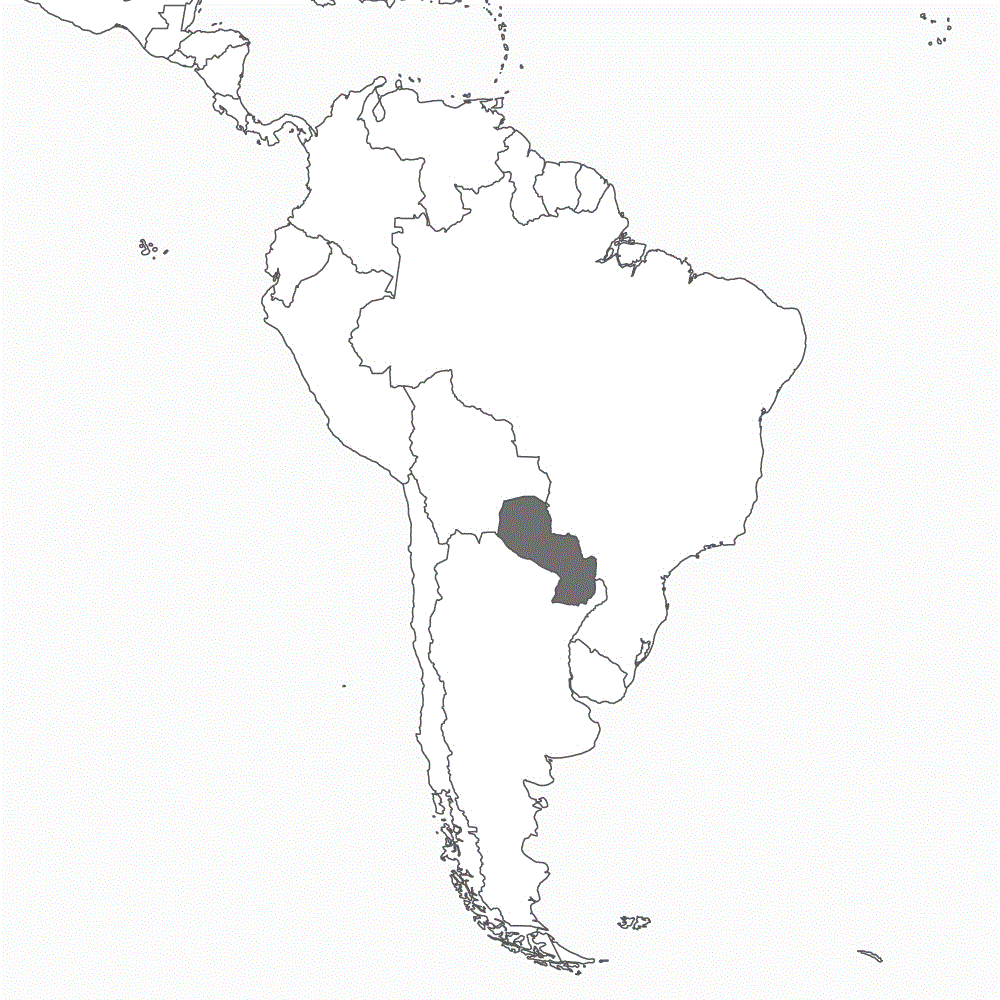A German Privilege
ASUNCIÓN/BERLIN (Own report) - Berlin is thwarting measures aimed at fighting poverty in Paraguay and extorting special privileges for German large landowners ("latifundistas"). Victims of these measures are the landless peasants, many of whom live below the poverty line, who were promised by the Paraguayan constitution plots of the fallow laying latifundia. Those benefiting are German citizens, who - often for reasons of speculation - bought real estate in Paraguay, but are not using it. Applying the "Investment Protection Agreement," Berlin is thwarting that the property be expropriated, compensated and granted to the needy landless peasants - in accordance with Paraguayan law. Several aid organizations have reported that the German embassy in Asunción intervened in opposition to the land reform measures. The German government remains relentless, in spite of the Inter-American Court ruling that the preferential treatment granted the latifundistas is a Human Rights violation.
Undernourished
The spark igniting the current conflict is the Paraguayan land reform. This South American country has the highest property concentration of the American continents. One percent of the landowners are in control of more than three-fourths of the entire country, while forty percent of the small peasants have but one percent of the available land at their disposal. This has resulted in half of the rural population living below the poverty line. One out of seven Paraguayans is undernourished.
Expropriating
The 351 largest latifundia comprise more than 10 million hectares. Included are those that were bought purely for reasons of speculation and are laying fallow. Paraguayan law provides for the possibility of the expropriation, with reimbursement, of this property and its transfer to the landless needy for use. This option will be implemented, in accordance with the International Convention on Economic, Social and Cultural Rights and will take property rights into consideration.
Investment Protection
Fallow property owned by Germans are exempted. Numerous expropriation procedures have been unsuccessful in the Paraguayan Senate due to the so-called investment protection agreements between Germany and Paraguay, which took effect in 1998. According to German legal opinion, this provides a guarantee that German property will be exempted from expropriations provided for by the Paraguayan constitution. Because German latifundia could be affected by the Paraguayan land reform, the Foreign Ministry in Berlin has written that "due to social problems in rural areas, it is often difficult for the government to provide a comprehensive protection for property investments," but continues optimistically: "The situation has become more relaxed since 2005."[1]
Very Worried
With a note from the German embassy in Paraguay dated October 10, 2000, Berlin had previously intervened in Asunción on behalf of German land owners. At that time, more than 80 impoverished peasant families had begun to plant food on property that had been laying fallow for 15 years. The property belongs to a German citizen. The consequences resulting from this use of the property, are described in a study jointly compiled by the development aid organizations "Bread for the World" and "Misereor", the human rights organization FIAN and the Church Development Service (EED), on hand at german-foreign-policy.com. According to this report, the peasant families were violently driven from the German's property, wounding several people including children. In a diplomatic note (no. 152/2000) shortly afterwards, the German embassy in Asunción expressed that it was "very worried," worried, not because of the situation of the evicted peasants, but rather about the property of the German owner. He does not even live in Paraguay and had verifiably allowed his property to go to seed. Berlin's diplomats explained that they would not tolerate the "expropriation of a relatively small piece of property, that is conveniently utilised".
No Justification
In fact the German approach is in violation of international law, as was ruled in the case of the Sawhoyamaxa indigenous community, handed down in March 2006, by the Inter-American Court on Human Rights. Their ancestral land is today part of a more than 60,000 hectares German owned latifundia. According to Paraguayan law, the land must be returned to the indigenous community in exchange for compensation. But according to the German legal opinion, the Investment Protection Agreement stands in the way of this transaction. In a complex lawsuit, the Inter-American Court of Human Rights decided, March 29, 2006, that bi-lateral German treaties do not supercede human rights. "The Court holds that the application of bilateral commercial agreements do not provide a justification for the breach of states obligations emanating from the American Human Rights Convention". This verdict remains a "dead letter".[2]
Special Treatment
That this case is in fact one of extraordinary privileges specially for Germans, is demonstrated by another case. This involves also a piece of property that lays fallow. As usual, security forces violently attacked small peasants, and referring to the German-Paraguayan Investment Protection Agreements, drove them from the premises. They had begun to plant food on the unused property. Their crops were burned. The owner had allowed the property to go to seed since 1989. At that time, Alfredo Stroessner, the ethnic German dictator, was overthrown. His military regime had allowed preferential treatment to be granted to members of the ethnic Germans in Paraguay,[3] including the property owner in question. Following Stroessner's overthrow, he was internationally wanted by the police for alleged large scale financial infractions, and had gone underground. But his property was protected because he was German. That is until it became known in 2006, that he has Swedish, rather than German, citizenship. Immediately after this became known, the Senate in Asunción ruled that his property be expropriated and included in the land reform.
[1] Beziehungen zwischen Paraguay und Deutschland; Länder- und Reiseinformationen des Auswärtigen Amts
[2] Keine Sonderbehandlung für deutsche Landbesitzer in Paraguay; Pressemitteilung von FIAN Deutschland 19.11.2007
[3] see also Besondere Proben
